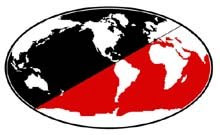 Bon, disons que c'est pas à tous les jours que nous allons vous refiler un texte de ESPN, mais celui-ci sur Cuauhtémoc Blanco est particulièrement intéressant parce qu'il aborde les réalités de l'immigration et des classes sociales dans le monde sportif.
Bon, disons que c'est pas à tous les jours que nous allons vous refiler un texte de ESPN, mais celui-ci sur Cuauhtémoc Blanco est particulièrement intéressant parce qu'il aborde les réalités de l'immigration et des classes sociales dans le monde sportif.tiré de http://soccernet.espn.go.com (en anglais/in english)
Out here, not even David Beckham's pretty face could buy him a parking spot. Chicago's Little Village -- the Mexico of the Midwest -- is gridlocked on this September Sunday because 500,000 revelers are celebrating Mexican Independence Day with a good old Yankee parade. Many wear the yellow soccer jersey of Mexico City's Club America, and they've come to pay homage to a different futbol hero, parade grand marshal Cuauhtémoc Blanco.
No player has had a greater impact on MLS this season than the explosive, 5-foot-9 striker. Since coming to the States in July, his creative and contraversial playmaking has lifted the Chicago Fire from last place in the East to eighth overall, putting them on pace for a spot in the playoffs, which begin Oct. 25. While mainstream America drools over Beckham's brand name, it is Blanco who has at last made the league relevant to working-class Mexicans, pro soccer's most passionate U.S. fan base.
Leading the parade, an exuberant Blanco waves to the right, gives thumbs-up to the left and flashes his trademark Aztec warrior pose -- think Mr. Universe walking like an Egyptian-- which is a tribute to his namesake, the last Aztec ruler of Tenochtitlan. A few steps behind, boxing promoter Don King (in town to flog an upcoming bout) chants, "¡Viva Blanco¡ Numero uno!"
Too bad King's not around more often. Blanco could use a good hype man. Despite Blanco's having a global rep and superb skills, his signing (his $2.6M salary is second only to Beckham's) stayed under the media radar. The difference is that Beckham, with a model's face and pop-star wife, transcends the sport, while Blanco is simply a player, one from the wrong side of the cultural divide.
Blanco grew up in Tepito, a Mexico City barrio some call the toughest neighborhood in North America. Now 34, with two Mexican League MVP trophies and a Champions' Cup title, Blanco still looks like a man who could hold his own in a brawl. "If you put him in a hard hat and told me he's a construction worker," says teammate Diego Gutierrez, a Colombian-born midfielder who often serves as Blanco's locker room translator, "I'd believe you."
On the field, Blanco sometimes looks like a child acting out, which made his signing a flash point for anyone paying attention. He's a major factor in the U.S.-Mexico soccer rivalry, reviled as a badgering, flopping provocateur. With Club America, his celebrations ranged from comical to crass; he once lifted his leg, canine-style, in front of an opposing coach. He has a history of public feuds with coaches, opponents and the media. Said Fire midfielder Chris Armas when the deal was announced in April: "You just hope the guy can be a team player."
He's been that and more so far. Like it or not, drawing fouls is part of Blanco's skill set. It's one thing to get nicked, another to make sure the ref knows about it. Through his first 12 MLS games, Blanco drew a hefty 53 fouls, setting up the free kicks that helped him notch four goals and six assists. "Forty percent of all goals come off set plays," says Fire coach Juan Carlos Osorio. "He can create those. And he's beautiful because he gets clobbered but he still wants the ball." That toughness has endeared him to teammates. "He's brought this team together," Armas says.
As the parade nears its end, a 32-year-old factory worker named Victor Perez jumps over the barricade with a handful of jerseys. Blanco signs each one as other marchers bottleneck behind him. Perez hugs his hero, and the affection is mutual.
Blanco sees the working man's life as nothing short of heroic. "These people cross the border at great risk just to take care of their families," says the star who ducks into kitchens of upscale restaurants when managers don't let their staffers come out to greet him. He sends them words of encouragement when he gets on the radio and poses for endless photos. "It's beautiful," he says, slightly awed. "With a simple autograph, they go away happy."
Fans like Perez are paying Blanco back with a large and boisterous following, boosting attendance and tipping the balance of support toward the Fire at road games. Maybe the mainstream should take a hint, says Gutierrez, who seems exasperated that America is still blinded by Beckham's bling. "How can you not embrace the biggest Latin star in the country?" he says. "Plus, he's doing it on the pitch. He represents what America is all about."













1 commentaire:
Footy, toujours le beau jeu, malheureusement réfléchie les pires de humanité, notamment la nationalisme et l'obsession avec la richesse.
Enregistrer un commentaire